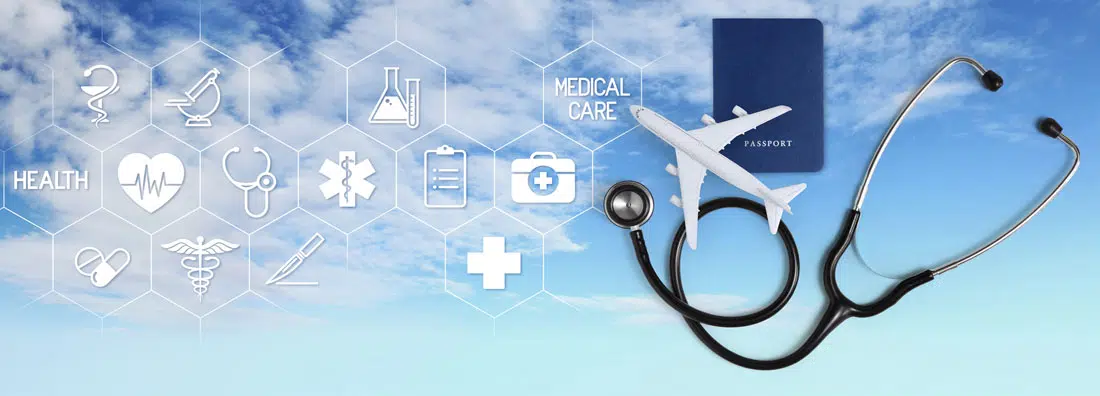-
-
Antalya, Turkey
Dental Care
Medical Tourism in Turkey
Renowned as a premier global hub for Health Tourism, Turkey stands at the forefront of this industry. In conjunction with its top-tier medical amenities, the nation offers medical tourists the opportunity to indulge in thermal spas and healthcare regimens seamlessly integrated with deluxe hotel stays. Turkey's allure as a medical tourism destination extends widely, drawing visitors not only from European nations like Russia, Ukraine, Germany, England, the Netherlands, Romania, and Bulgaria, but also from the Middle East and Latin America, among other regions.

According to data by the Turkish Ministry of Health, it is estimated that approximately 552,000 foreign patients benefited from Turkish health-care tourism opportunities in 2018 while at average 40 million tourists visited Turkey same year. Turkey has about 30 JCI-accredited medical facilities, more than anywhere in Europe. JCI accreditation is a quality mark. It confirms the higher quality of treatment provided and the general patients' safety. There are about 900 public and 600 private hospitals in the country.
Turkey is the sixth most popular tourist destination in the world! With more than 700,000 visitors coming for medical care annually, it has developed into a well-liked medical tourism destination. According to the statistics, the number of medical tourists is expected to exceed 2,000,000 by 2023! Further, medical tourists account for more than 32% of tourists in Turkey.
Turkey's Healthcare System
Turkey is currently proactively pursuing imminent full membership within the European Union. In anticipation of this, rigorous measures have been implemented to uphold exacting standards pertaining to quality, technology, and medical provisions across both public and private healthcare establishments. Oversight bodies, established under the aegis of the Ministry of Health, engage in ongoing surveillance of specific criteria. In tandem with an autonomous Turkish Medical Group, the Ministry of Health delineates local benchmarks and directives that hospitals, healthcare facilities, and medical professionals dutifully adhere to.

Approximately 55 percent of Turkey’s 1200 + hospitals are owned and run by the Turkish Ministry of Health, while the remainder are owned by universities, private companies, and international organizations. Most hospitals have local and international accreditations, including the JCI (Joint Commissions International), JACHO (Joint Commission on Healthcare Organizations Accreditation), ISO (International Organization for Standardization), and Western medical associations and facilities affiliations.
Affordable Treatment Cost & fluency in foreign languages
Treatment costs in Turkey are 70%-90% less than the prices in Europe, North America, and the UK. For example, heart valve replacement surgery costs 170,000USD-200,000USD in the USA while it costs around 17.000USD in experienced hands in Turkey.

discover our medical services
Our goal is to invigorate the Turkish medical tourism sector through our dynamic, experienced team, our distinct corporate identity, and our collaborative partners in both industries. ROYALYA Group asistances you to find the best treatment, doctors and hospitals in Turkey at affordable prices. We provide consultation asistances under partner agreements with the best hospitals and clinics in Turkey. Our patients can make payment where they have recieved cares. It also helps in travel and stay alongwith 24X7 care for patient and attendant. Our objective centers on not only the medical aspect but also the tourism facet of this sector. Thus, we strive to craft personalized treatment packages for each patient, assuming the role of their lifelong well-being curator. Diverging from the conventional approach to medical tourism, we blend leisure and treatment, affording our patients the choice to vacation before, during, or after their procedures. With a commitment to elevating quality across all domains, we present an extensive array of health services alongside tourism opportunities. In our capacity as your dedicated lifelong well-being curator, we remain engaged with patients even after their treatments, offering post-treatment support as they return to their home countries and oversee their recuperation journey.

- Digital Dentistry
- Implant and Surgical Treatment
- Teeth Whitening
- Smile Aesthetics
- Diagnostics and check-ups












